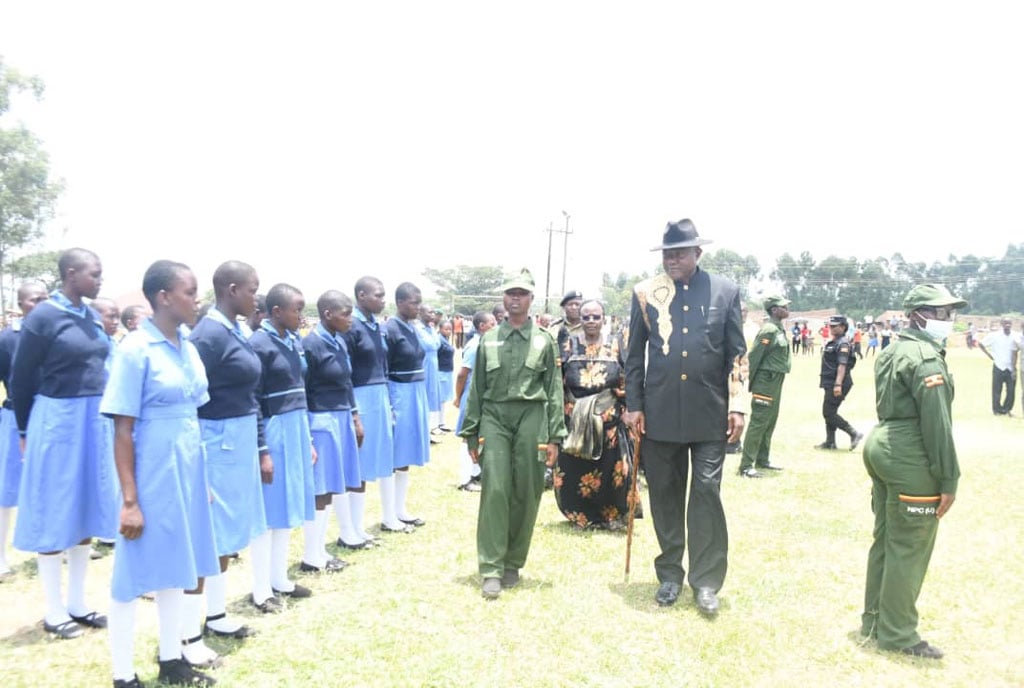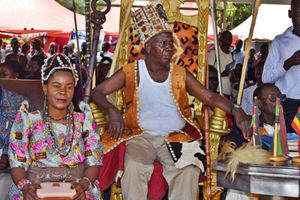
Umukuka, the leader of the Bamasaba Cultural Institution.
I would like to respond to Dr Moses Khisa’s opinion titled “‘His Royal Highness’ in Bugisu is abominable’’ that this publication run on August 10.
Allegations that the Bamasaba people once they get circumcised do not by implication accept counsel from anyone including their king on account of their new-found status as circumcised men is very erroneous and quite misleading.
I am happy to note, it was merely an opinion of an individual writer and not an editorial position of the Monitor, unless Dr Khisa concluded Bamasaba debt in a rather non cultural way and hence did not grab final instructions from elders before heading for the knife, some of those instructions inculde respect for elders.
He equally glossed over the reasons behind percolation of circumcision among the Bamasaba peoples of both Uganda and Kenya, I pray there is no uncircumcised Umumasaba hiding in the diaspora, the memory of circumcising an MP at 80 years is still too fresh to reckon with.
The Bamasaba people of both Uganda and Kenya recently celebrated their first coronation anniversary of their king and the successful imbalu launch that was witnessed by millions of Ugandans including more than 10 cultural leaders.
The late Gen Eyasimbe Eyadema, a Togolese military strong man, reportedly said: “Even if you don’t like the antelope, at least you must admire its speed”.
Certainly I thought Mr Khisa’s article was in admiration of our speed on what we have so far registered in a short span of time but alas.
I suppose Dr Khisa has overstayed across the pond for a longer period of time and was busy attending to books and paid little focus on the rich curriculum vitae of the present Bamasaba cultural leader, His Highness Jude Mike Mudoma, which among others, includes a bachelor’s and master's degrees in forestry and chairman of Buyobo Sub-county in the early 1990s and Mbale District councilllor, among others.
Dr Khisa’s opinion, thereby, dampened the mood of the Bamasaba people and the cultural institution demands an apology.
He should apologise over his unbacked claim on the cultural leader’s title.
The law that legitimizes cultural institutions in Uganda discourages any cultural leader from compelling his citizens in paying allegiance to him or her. I hope my brother Khisa finds some solace and comfort in this constitutional provision.
Once the two constitutional provisions and statutory provisions are well analyzed they will shade a lot of light on how cultural leaders emerge in communities, Article 246 of the Constitution and the Cultural Leaders Act, 2011,when read concurrently guide that if a community wants to have a cultural leader, the respective local governments should endorse such a claim and after the leader has been identified, and if there is contestation on who is more legitimate among the claimants for the throne, elders can mediate and guide. If mediation fails, then the matter can be taken to court.
Bamasaba faced the same impasse around 2020 when we had two claimants to the throne, particularly the current Umukuka, His Highness Jude Mike Mudoma, and another elder. Minister of Gender Betty Amongi invoked the provisions envisaged in the law to extinguish this conflict on cultural leadership.
The minister wrote to Umukuka emeritus Wilson Wamimbi, who had vacated service of the cultural institution and and asked him to step in around mid-2023 and help to meditate as envisaged by the framers of the law, after various efforts to locally resolve the impasse, including involvement of religious leaders, had failed.
Umukuka Wamimbi gathered all the 26 clan chairpersons as per inzuymasaba policies and converged at the Mbale District headquarters in the council hall. Luckily enough, the two competitors for the cultural leadership were both present. After about 10 hours of discussions and efforts to reach a consensus, about 70 percent of those present endorsed the present Umukuka Jude Mike Mudoma and communicated the decision to the Gender ministry. The ministry gazetted Mudoma as the cultural leader of the Bamasaba.
Dr Khisa may have overstayed in the diaspora and thus lost touch with the above realities and statutory directives on the same.
He is well suited to know that any form of scholarly posit can’t take precedence over enacted law or people’s culture, it would be disrespectful on our part to label him as kaukumi (weavil) in diaspora as it is in popular parlance here.
However, on account of his status as an academician he has a few followers who may blindly follow their mwalimu’s submissions,they need an accurate picture from the cultural institution and this is why we are attempting to do this , otherwise Dr Khisa by virtue of his age should know the cultural way of raising any issue that calls for clarification if there was any such issue.
But as a cultural institution we exist to guide and counsel our people whenever they veer off the cultural radar.
Probably Dr Khisa’s life and study in the diaspora may have made him veer from the cultural road but we shall always counsel our people.
The Ugandan Constitution is succinct on how citizen in a particular cultural enclave should relate with their cultural institution and leaders.
We have followed the entire thread of the law upto this level.
Steven Masiga is the spokesperson of Bamasaba Cultural Institution.
[email protected]



